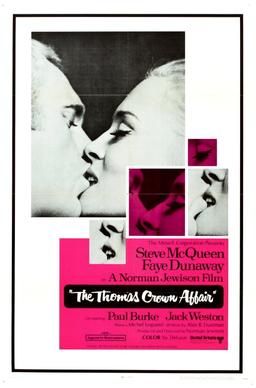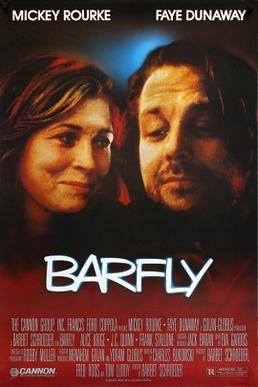
FAYE DUNAWAY
CINERAMA

NATURALLY AUTHENTIC PRESENCE ON SCREEN FINDS HOLLYWOOD STARDOM
By PETER THOMAS BUSCH
This Hollywood story started when Clyde met Bonnie.
Clyde offered Bonnie escape from her life of loneliness and isolation in a small Texas town during the Great Depression.
Actor Faye Dunaway used the 1967 feature film role as a springboard to a career she had dreamed of since a five year old girl, becoming the center of attention by entertaining the adults in the room.
Dunaway grew up in Jackson County Florida watching the peanuts boil, hoping that her grandfather would soon be driving down the lane in his Model A Ford used only for special occasions to take the family around and about.
The picture shows offered a better, more interesting life for a dirt poor farmer’s daughter. Dunaway was born three months early, and when she mustered her strength and grew old enough to, she spent time in the surrounding farms picking cotton for a penny a bushel.
Watching her father leave for the war theater during World War II just added to the prospect of something more special found in an adventure. The family would move every two years from army base to army base once her father returned home from military duty in Japan.
Dunaway channelled this poor, lonely southern girl into the Bonnie Parker character – coming alive in the moment when she saw from her second story bedroom window the adventure that would take her away from what little she had, in Bonnie and Clyde (1967).
Warren Beatty stars as Clyde Barrow, and Clyde and Bonnie with Clyde’s brother, Buck, and his wife, Blanche, race around in variations of the Ford Model A, robbing small town banks and Ma and Pa convenience stores. Buck is played by Gene Hackman. And Blanche is played by Estelle Parsons.
Since then, life became much better playing supporting characters in feature films. With that initial success of the Bonnie Parker character, came a more upscale story about a wealthy financier taking on various hobbies and projects to remain interested in the world his fortune has bought him.
Steve McQueen stars as Thomas Crown in The Thomas Crown Affair (1968). Dunaway shares time on the screen as a private insurance investigator looking into the suspiciously perfect robbery of a large Boston bank.
The characters fall victim to the sexual tension that exists on the screen between Thomas Crown and Vicki Anderson, too handsome and too beautiful to ignore the natural charismatic attraction between the two.

The characters first meet when Vicki has already suspected Thomas as the mastermind behind the multi-million dollar bank heist. But the magnetic energy between the two characters makes them fall in love despite the conflicting interests.
So far, the adrenaline junkies provide a lot of fun on the production sets.
The supporting character role moves incrementally more and more to that of a victim. Robert Redford stars in the spy thriller Three Days of the Condor (1975) with Dunaway playing a reluctant sidebar trying to survive in Manhattan.
Redford plays Turner whose CIA sub-station is wiped clean while he is out getting lunch for everyone. Turner panics when his emergency contact seems a bit suspiciously unsympathetic toward his situation.
Director Sydney Pollack has Turner too at risk to return home. So, as an innocent CIA agent being hunted for unknown reasons, Turner holds Kathy hostage in her own home until he can develop a survival strategy.
Dunaway transitions the character from totally fearful of the protagonist to being somewhat empathetic.
By 1987, Dunaway has almost totally capitulated to the adventure that stardom brings, playing Wanda Wilcox to Mickey Rourke’s Henry. Henry is reimagined street poet Charles Bukowski during his time down and out in Hollywood.
Henry and Wanda binge drink while sharing a flat together on the Sunset Strip with life being limited to the need to earn enough money to binge drink more.
Rourke has the lead role getting into fights at a favorite dive bar. But Dunaway provides the added dynamic that is needed in a side plot about love and love lost that makes the entire story more meaningful.
Barfly is all about the disappointment in a life that falls short of expectations, particularly with the domineering presence of the more superficial motivations.
Dunaway found glory in the process of invention that an actor must go through to create the character. The poor southern girl had become someone else by fits and starts as if piecing a story together one episode at a time.
This storied life led to the part of Hollywood screen legend Joan Crawford in Mommie Dearest (1981). Dunaway had played several biopic characters, and now played a bit of herself as an actor playing an actor.
Crawford is depicted as having a bit too much mercurial quality. The story is told from the point of view of Crawford’s adopted daughter, Christina.
In the height of her stardom, Crawford seeks out a fuller life to be enjoyed with family after enduring several miscarriages. First Christina, and then Christopher are adopted into a loving and generous home, but the children must learn the hard way to live in the home of a Hollywood starlit who has succeeded only through maintaining perfection.
Dunaway plays Crawford as loving but aloof and as narcissistic as one might expect of a leading Hollywood starlit. The Crawford character is also shown to have uncontrolled fits when engaged with her children.
Crawford adopted five children in all, with two of the children, twin daughters Cathy and Cynthia, denying any abuse by their mother, which Christina had claimed in her biography, Mommie Dearest, published after her mother’s death in 1977.
The character as described in the biography is given the usual potion of authenticity Dunaway gives her subjects. Dunaway had broken a bit the mold that made her popular among casting directors by method acting the part, showing the kind of dreamy demeanor that success can provide, but also the mercurial qualities of narcissism and perfection.
Dunaway had been perfect already with a natural ease in front of the camera, as her main gift to film was appearing, as much as possible, just being herself quite naturally inside the frame provided by the script.
She was acting by 5, dancing by 12 and a natural actor in 1967.

Looking for Gatsby: My Life, by Faye Dunaway, with Betsy Sharkey, New York: Simon & Schuster, 1995.